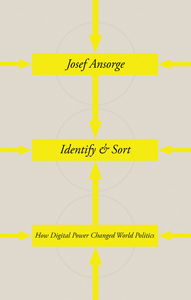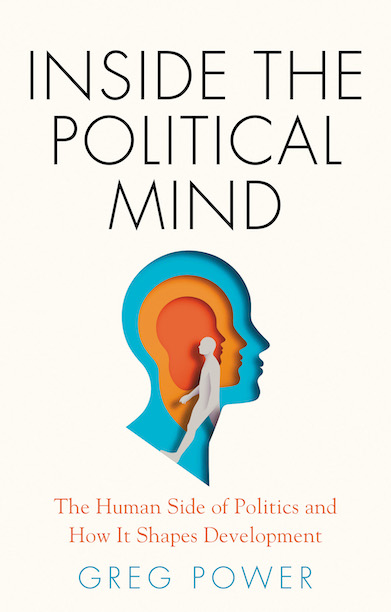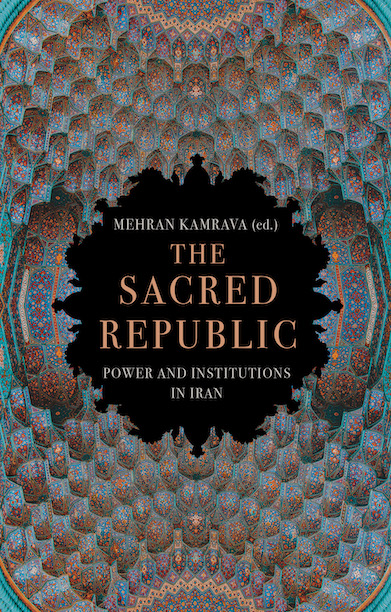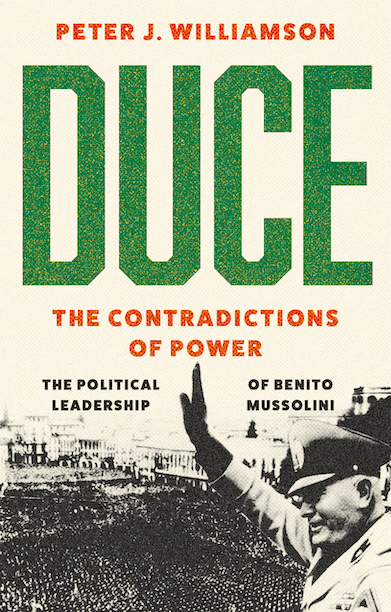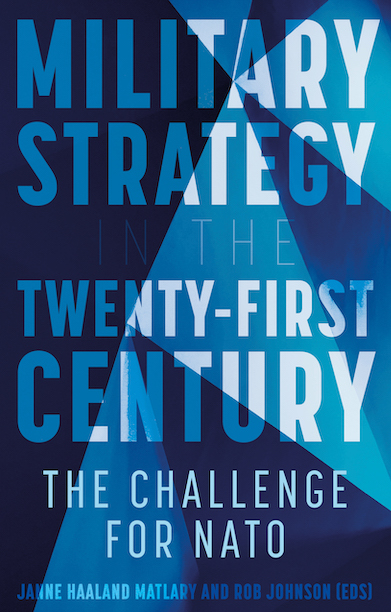Identify and Sort
How Digital Power Changed World Politics
Part of the Critical Strategic Studies seriesWe all are aware that technology measures us, affects our lives and shapes our behaviour. This book explains how and why.
Description
The advent of information technology ushered in new forms of political power. Machines play crucial roles in how states see, understand, and act, and scrutiny of these processes lies at the heart of Identify and Sort. It frames debates about ‘IT’ in world politics, explaining how industrial sorting systems employed by political actors are renegotiating the social contract between individuals and the state. Ansorge takes the reader on a global expedition that tracks the historical antecedents of digital power, from Aztec and Inca rituals, to medieval filing systems, to a grandiose 1930s design for a German registry, to the databases used in US presidential campaigns and how IT is deployed in war and post-conflict reconstruction.
Databases are also deployed virtually to record and act upon people who have no publicly visible identification or group consciousness; modern wars and election campaigns are fought on this individualised terrain. The uneven distribution of these technical capacities engenders inequality of access, while rights discourses and legal frameworks — forged in an era of mass group discrimination, subjugation, and public resistance — lag behind these micro-targeting practices. Rich in examples and ideas, Identify and Sort develops an analytical model and vocabulary to explain the functions and limits of digital power in world politics.
Reviews
‘While his examples of the ritual and archival modes are fascinating, his depiction of the digital age is quite scary. Analysing widely disparate phenomena, from Obama’s 2008 election campaign to the US army’s use of gaming as a recruitment and training tool, Ansorge raises many pertinent questions about the relation between digital technology and democracy.’ – Jordan Times
‘From ancient rituals to modern databases, this is a fascinating account of the techniques of sovereign power in our time. Drawing on a distinction made by Foucault, but not pursued by him in the impressive way Ansorge has done, this study shifts our attention from the internalisation of political authority to the methods used for controlling populations without their awareness. Full of insights, Identify and Sort is a book that should be read by everyone concerned to understand modern power.’ — Talal Asad, Distinguished Professor, Graduate Center, The City University of New York
‘Brilliant and riveting. From the history of ear-cutting in ancient Egypt to the disambiguation protocols of modern digital power, Josef Ansorge shows us how sovereigns have throughout history sought to satisfy their insatiable need to mark, count, name, and categorise the people they govern. Eye-opening, indispensable, and commanding in its breadth, Identify and Sort reveals strange new truths on every page.’ — Jed Rubenfeld, Robert R. Slaughter Professor of Law at Yale Law School
‘Sovereigns have always tried to sort and identify people. Modern information technology has brought these formerly opaque processes into the open, and governments, even in democratic states, have gained public support for extensive electronic intrusion in peoples’ lives on the grounds of security. Seeing like a state involves seeing through a computer screen. Our political and legal discourses do not cope well with the threat of digital power. They require a new science of politics, and this book represents a thoughtful, creative, and necessary step in this direction.’ — Ned Lebow, Professor of International Political Theory, King’s College London
‘In our “totalitarian digital present”, as Josef Teboho Ansorge vividly demonstrates, the state can see in new ways, both further in space and minutely in scale. His intrepid survey of theoretical and historical contexts in which to grasp the practices and tools of the contemporary sovereign is brilliant and thought-provoking.’ — Samuel Moyn, Professor of Law and History, Harvard University
‘Ansorge combines cutting-edge technical expertise with brilliant political insight. He forces us to confront the pervasive power dynamics of the surveillance state – and the deep challenges involved in securing a humane society in the twenty-first century.’ — Bruce Ackerman, Sterling Professor of Law and Political Science, Yale University
‘In this hugely impressive book that deftly weaves grand theory with illuminating empirical examples, Ansorge has gifted us with remarkable insights into the historical origins and contemporary workings of computerised databases as they reorder societies and recast identities. An indispensable read for any engagement with the nature of politics and power in the digital age.’ — Antoine Bousquet, Senior Lecturer in International Relations, and author of The Scientific Way of Warfare: Order and Chaos on the Battlefields of Modernity
‘With this book, Josef Ansorge distinguishes himself as one of our most promising and innovative young scholars. Drawing on a capacious and intellectually dazzling range of disciplines and lines of inquiry, he offers an original and provocative new way of understanding the creation and evolution of the state, its complex relationships with citizens and society, and the very meaning of human identity.’ — William Inboden, Executive Director and William Powers Jr. Chair, Clements Center, University of Texas, Austin
‘Identify and Sort is a fascinating work that takes the process of investigation, identification and, one might add, manipulation from the ancient world down to a window on the future. Ansorge looks at the moral, legal and personal implications of supervision and identification through history and in the digital present. He provides information and asks questions about the utilities and modalities of specification and its often contradictory personal and administrative/political functions. In the process, and it is a book about process, he also presents an analysis of how the human mind works analogously across cultures. The book is stimulating, informative and provocative.’ — Amb. Robert P. Finn, Non-Resident Fellow, Liechtenstein Institute on Self-Determination, Woodrow Wilson School, Princeton University
‘A radical take on information technology and political power where the sovereign is refigured as the one that identifies and sorts. Ansorge provides the astute analysis and the practical tools to challenge these new forms of political-digital-power. He shows how we live in a global regime of a technics of politics that appropriates our subjectivity, and how we are able to re-appropriate our personhood, if we first understand that it is being taken from us.’ — Jenny Edkins, Professor of International Politics, Aberystwyth University
Author(s)
Josef Ansorge practices law in New York City. He holds a PhD from the University of Cambridge and a JD from Yale Law School.
